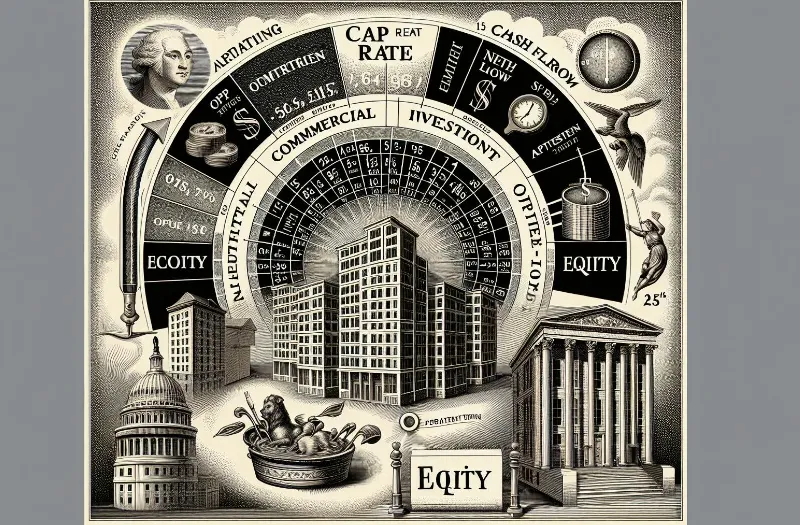Introduction to Market Cycles
Understanding market cycles is vital for any investor, especially those focused on real estate.
The market operates in waves of highs and lows—these cycles significantly influence property values and investment returns.
By grasping how to effectively track and analyze these fluctuations, you can harness the timing of your investments for maximum profit.
What Are Market Cycles?
Market cycles are the patterns of price movements that dictate the performance of investments, including real estate.
Broadly, these cycles consist of four key phases: expansion, peak, contraction, and trough.
Recognizing where we are within this cycle is essential for successful investing.
- Expansion: Characterized by rising property values, low unemployment, and increased consumer confidence.
- Peak: The economy is thriving, but signs of overextension begin to emerge, leading to potential market correction.
- Contraction: A decline in economic activity is noticeable; property values decrease, and unemployment rises.
- Trough: The lowest point of the cycle, where opportunities for buying at bargain prices emerge.
Understanding these phases can empower you to make informed decisions.
The Importance of Timing
Timing your investment decisions in accordance with market cycles can yield significant returns.
By aligning your buying and selling strategies with market trends, you position yourself to maximize your profit while minimizing losses.
Benefits of Timing the Market Cycle
- Optimal Purchase Prices: Buy at the trough for the best deals.
- Informed Selling Decisions: Cash out at the peak to capitalize on high market values.
- Reduced Risk Exposure: Aligning investments with market trends can mitigate risks associated with downturns.
- Enhanced Cash Flow: Understand when to invest for rental properties to boost cash flow during expansions.
Gathering Data for Market Analysis
To successfully analyze market cycles, you'll need access to reliable data sources. Here are several key resources to gather pertinent information:
Economic Indicators
Economic indicators play a pivotal role in understanding market cycles. Key metrics include:
- Gross Domestic Product (GDP): Measures overall economic health.
- Unemployment Rates: Affects consumer confidence and buying power.
- Interest Rates: Impact borrowing costs and housing demand.
- Inflation Rates: Affects the purchasing power of money and overall prices in the economy.
Real Estate Statistics
The real estate market provides additional indicators, such as:
- Median Home Prices: Track changes over time to identify cycles.
- Inventory Levels: A high inventory indicates a buyer's market, while low inventory suggests a seller’s market.
- Days on Market: A longer duration may indicate a declining market.
- Rental Vacancy Rates: Higher vacancies can signal a shift in market demand.
Tools for Tracking Market Cycles

Investors must employ the right tools for effective tracking and analysis. Here are some options to consider:
Online Data Aggregators
Leverage websites like Zillow, Redfin, or Realtor.com, which provide real-time data on home sales, prices, and rental trends.
By analyzing this data, you can identify patterns that indicate the current phase of the market cycle.
Local Real Estate Reports
Many local real estate associations publish periodic reports detailing housing market trends.
Subscribing to these newsletters can provide insight into community-specific cycles, allowing for more tailored investment strategies.
Economic Reports and Forecasts
Stay informed through national economic reports published by institutions like the Federal Reserve and the Bureau of Labor Statistics.
These documents can provide valuable insights into macroeconomic trends that influence market cycles.
Real-Life Strategies from Successful Investors
Learn from the experiences of successful real estate investors who have mastered market timing. Here are some strategies worth noting:
Case Study: The Brenner Family
The Brenner Family invested in rental properties in Atlanta, Georgia.
They identified the 2008 market downturn as a buying opportunity, acquiring properties at significantly reduced prices.
This strategy allowed them to build a substantial real estate portfolio that flourished during the expansion phase that followed.
Case Study: Sarah Collins
Sarah Collins, a seasoned investor in the California market, takes a proactive approach by analyzing interest rates.
When rates dropped, she acted quickly to refinance her properties, allowing her to maximize cash flow during the expansion phase.
Key Takeaways
- Monitor interest rates; utilize favorable conditions to capitalize on lower borrowing costs.
- Recognize buying opportunities during market contractions—this is when the best deals may be available.
- Stay informed through local trends and economic forecasts to anticipate shifts in the market.
Putting It All Together: Your Action Plan
Arming yourself with the right knowledge and tools is essential for leveraging market cycles in real estate investing.
Consider the following steps for a comprehensive action plan:
- Educate Yourself: Continuously learn about economic indicators, real estate statistics, and market cycles through reading, courses, and workshops.
- Develop a Tracking System: Create a personalized dashboard or spreadsheet to regularly input and analyze data.
- Join Investor Groups: Network with fellow investors to share insights and gain diverse perspectives on market conditions.
- Consult Experts: Don’t hesitate to seek the guidance of real estate professionals to refine your strategies and validate your findings.
- Stay Agile: Be prepared to pivot your strategies based on evolving market conditions. Flexibility is key to successful investing.
Conclusion: Your Path to Successful Investing
Timing the market cycle is both an art and a science.
By educating yourself, gathering the right data, and employing strategic insights from experienced investors, you can navigate the complexities of real estate investing with confidence.
The opportunity lies before you; embrace it and transform your investment journey into a successful venture.
Final Note: Remember, while market timing can enhance your investment outcomes, it does not guarantee success.
The key to thriving in the real estate market is knowledge, preparedness, and adaptability. Happy investing!
































